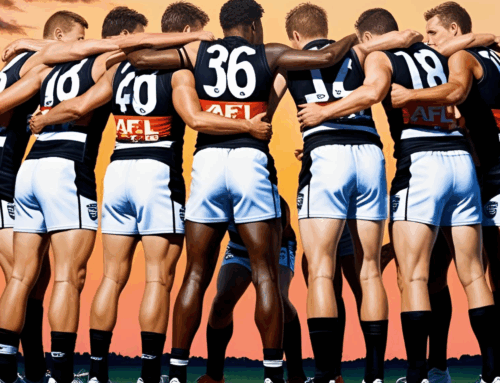What Bob Hawke’s leadership can teach us.
You don’t have to be into politics, or even Australian to realise the weight behind the collective mourning following the recent passing of former Prime Minister, Bob Hawke. Whether you were around when he was in power, or if you just heard about it, or read about it post-mortem, there’s so much we can learn from a charismatic and impactful leader such as Hawke.
Politics aside, I think if you could bottle what he had, you could create more effective leaders by the bucket load. For fun, and I put together a list of some of the loveable larrikin’s leadership qualities that made him such an adored figurehead in Australia’s recent history.
Charisma.
Probably the most standout attribute of Mr Hawke was his ability to spin a yarn ad hoc, and not only spin, but full tilt engage his audience––like no other politician before or since, Bob Hawke genuinely made people smile. This made him memorable and likeable, but how did it have anything to do with him being a great leader?
Charisma is a talent. It’s an effective leadership quality, and believe it or not, it’s accessible.
Don’t think you can tap into that, not funny enough? You don’t have to be. With Hawke, it was less about his sense of humour, though that did help, and more about his ability to read a room and understand the right time to be light-hearted––this is what charisma is. And whether you’re a funny dude, or a quiet, serious soul, you’ll command attention and you’ll charm people to the point of inspiration if you can truly read a room, tune into the vibe and attract people using your strength of character.
Compassion.
…which leads nicely into another great characteristic of good leadership, the ability to empathise with people and not only feel compassion but to show it. Bob Hawke had incredible compassion, and he was not afraid of it, he harnessed it to gain the trust of his people. Whether it was writing letters to young people who had genuine concerns about the world or shedding an authentic tear on camera when he truly felt saddened by world events, Hawke embraced compassion. Those old enough will never forget his infamous Tiananmen Square speech which historically changed foreign policy on the spot. Without even consulting with his Cabinet colleagues, Hawke offered Chinese students studying in Australia asylum. And, of course, they backed him on it.
It was this type of unbridled compassion and empathy that drove many great policy changes during the Hawke years, and it was the compassion and empathy that his party and colleagues––and voters–– were able to relate to and, in turn, unify with.
He endorsed Unity.
A leader is nothing without followers, but the value of the followers will only amount to something if they’re unified––and that’s when shit gets powerful. I’ve talked a lot about leading with vision and values, and a biproduct of that is ultimately a united team.
While we’ve seen some pretty good examples of how not to do it in recent Australian politics, Hawke’s government was a great example of a unified party that managed to achieve so much because of it. How did he do it? On top of the more obvious charisma and compassion, what Bob Hawke was also freewheeling in, was his transparency of flaws and weaknesses. When a leader is not afraid to show vulnerability, they build trust. Not only does the leader present as genuine, but they empower others in their vulnerability, and it’s a great leader that can do that.
I read a nice grab of this quality in The Conversation, a quote that sums up Hawke’s unifying reign perfectly, the journalist said, “His ego was colossal, but he had the wisdom to share power.”
I go back to my initial point, you can’t be a leader without anyone behind you.
Discipline.
Lastly, Hawke showed incredible discipline in his reigning years. There are things a leader may find difficult to give up, or tow-the-line with, but good leaders know, if you want to inspire and lead with strong morale, there are certain parts of your lifestyle that just won’t float. No one’s suggesting you be innocent, or even insincere, but if there’s something you know has to go––maybe a past time, or a relationship, or it could even be a personality trait that isn’t supporting your vision––you’ll at some point in your leadership journey, have to find the strength to be disciplined.
A great example for Bob Hawke was his drinking. The fella loved a tipple, in his union days this was well-documents, and, arguably helped his popularity, but it could have also been the death of him, he knew that. Despite one of Australia’s favourite thing about Hawkey was undoubtably his ability to neck a yard glass of beer, Bob Hawke knew when he was rising to his illustrious position that there’d be no room for his favourite past time so, he quit the drink.
A teetotaller from the time he ran for government until the day he left parliament, Bob Hawke showed incredible discipline with this. And he celebrated his retirement aptly––with several yard glasses downed.
RIP to our larrikin leader, he will forever be remembered.
Photo: James Brickwood
Continue Reading
Get a personal consultation.
Call us today at 1300 959 560.
Here in HR Gurus. We make HR simple because it should be.





